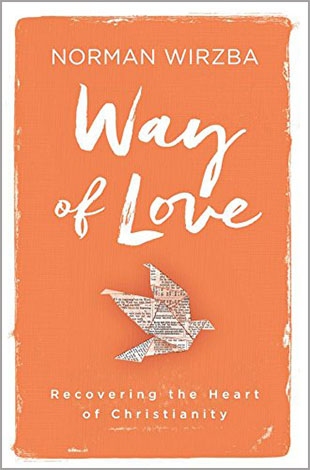Here are some questions being asked by countless men and women around the world: "Does Christianity still matter? Aren't we better off without this archaic religion and its sectarian squabbles and divisive politics? Why even bother with God when it is clear that the idea of God is the basis for so much pain and hurt in the world?" These questions are addressed by Wirzba in his fifth book; he is a professor of theology and ecology at Duke University Divinity School.
According to the author, Christianity can best be seen as a training ground in the way of love and Jesus is the best example of what it means to live the way of love in everyday life. Wirzba maintains that we cannot learn to love on our own since it involves nurturing and relationships. Christian community is "the merciful and indispensable classroom in which people face their confusion about love, repent of their unloving ways, and switch from strategies of self-protection and self-enhancement to projects that seek the well-being of others."
In order to understand and appreciate the unfathomable love of God, Wirzba has identified the four movements of love in Christian faith:
1. Creation as an expression of divine love
2. Fall as the consequence of division, separation and isolation
3. Redemption as the healing of our broken and selfish ways
4. Hope as the re-creation of life out of death
In the remaining chapters of this enlightening work, the author delineates how the force field of divine love enables us to respect and sustain the material world; to nurture other aspects of love such as humility, gratitude, and hospitality; to take seriously the many ways in which love is distorted, denied or destroyed; to rejoice in the gospel truth that God's love extends to everything, every place, and every one; and to take to heart the ways love works to bring about redemption and hope in the world.
